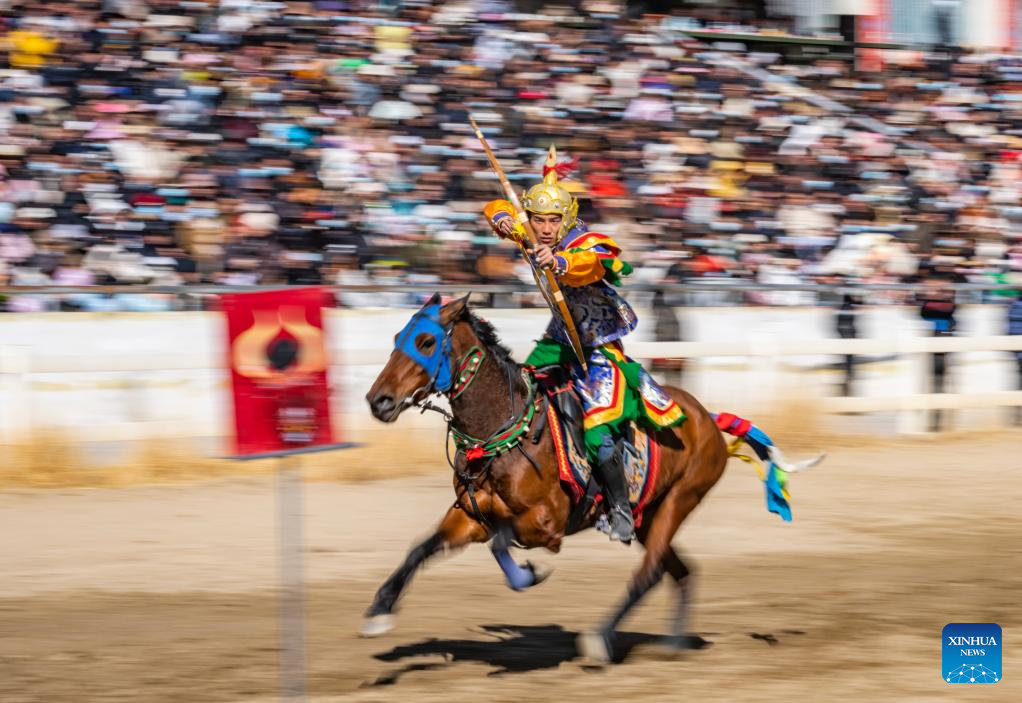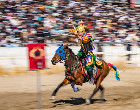West China
Xizang holds horse racing for Tibetan New Year
2024-02-15 22:01:48

A rider performs riding and archery in Lhasa, southwest China's Xizang Autonomous Region, Feb. 12, 2024. The equestrian team of southwest China's Xizang Autonomous Region staged a thrilling display of traditional horse racing in its capital Lhasa on Monday, the third day of the Tibetan New Year.
The riders were dressed in colorful Tibetan clothes and galloped gracefully around the racecourse in the northern suburbs of Lhasa. (Xinhua/Sun Fei)
LHASA, Feb. 12 (Xinhua) -- The equestrian team of southwest China's Xizang Autonomous Region staged a thrilling display of traditional horse racing in its capital Lhasa on Monday, the third day of the Tibetan New Year.
The riders were dressed in colorful Tibetan clothes and galloped gracefully around the racecourse in the northern suburbs of Lhasa. Yongya Yeshe, a 27-year-old member of the region's equestrian team, said that he has trained with his horse for over 13 years, and they performed the traditional horse race every Tibetan New Year.
Established in 1986, the equestrian team of Xizang has achieved numerous gold medals in national competitions and the team also regularly organizes performances in rural areas of the region, promoting and guiding local equestrian activities. They have given hundreds of free performances for farmers and herdsmen over the years.
As an old Tibetan saying goes: "Feed the horses on Tibetan New Year's Eve, race them on Tibetan New Year's Day." Horse racing is one of the most beloved and widespread sports among the Tibetan people, with a history spanning over a thousand years, as an integral part of Tibetan culture and the region's unique sporting business.
The race drew a large crowd of spectators. "We are from the city of Qamdo but are spending the new year in Lhasa," said Sonam, a citizen attending the event with his family. "This is our first time watching a horse race in person and the riders and their horses perform together so well."
Tashi Dargye, a coach for the equestrian team of Xizang, was guiding the riders in performing the "horse lying down" maneuver. "The maneuver, which involves the rider commanding the horse to lie down while riding, requires a deep bond and trust between the horse and the rider," said Tashi Dargye.
The horses in the events come from the surrounding counties of Lhasa and the city of Nagqu. The event aims to promote and popularize traditional sports among the locals, preserve horse racing culture and traditions, and enrich the sports and cultural life of the Tibetan people, according to the sports bureau of the region.
Editor:Jiang Yiwei

 手机阅读分享话题
手机阅读分享话题